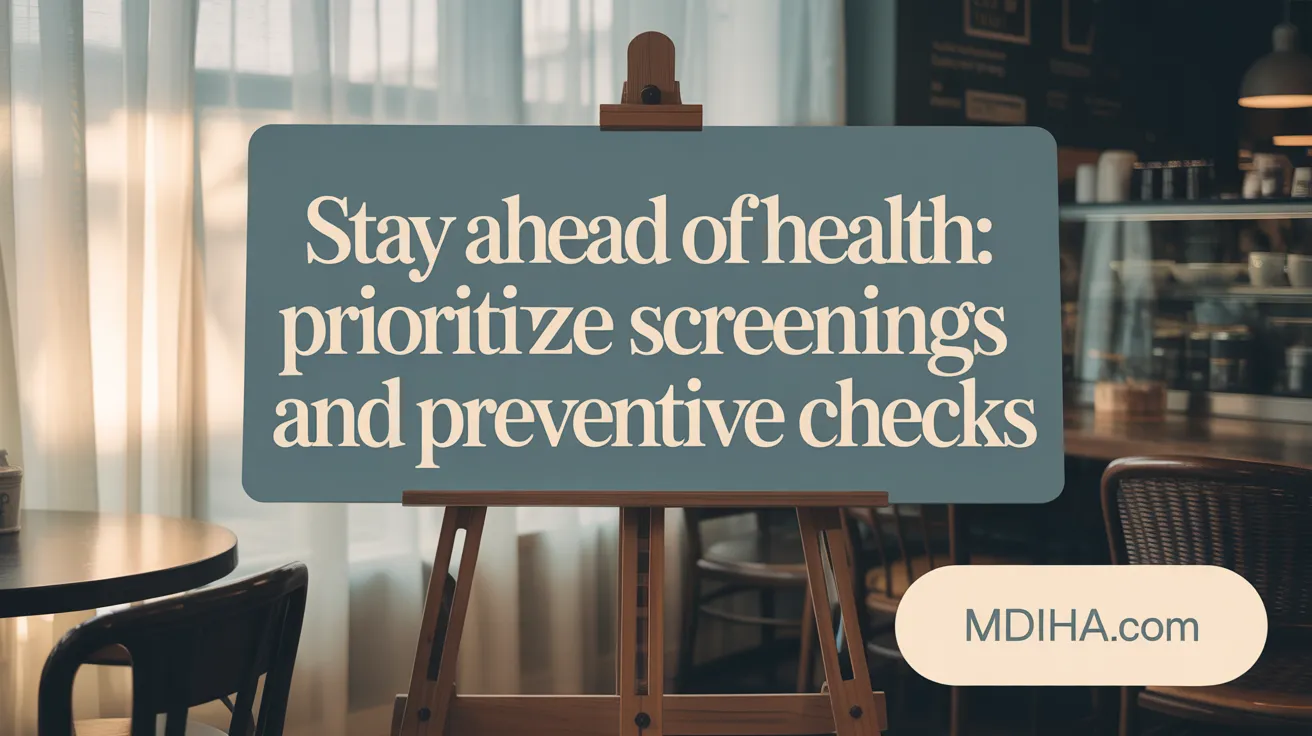Start Strong: The Importance of Early Healthy Aging Practices
Significance of Beginning Healthy Aging in 30s and 40s
Initiating healthy aging practices during the 30s and 40s is crucial for extending healthspan and preventing chronic diseases later in life. At this stage, physiological changes such as gradual declines in muscle mass, bone density, and hormonal shifts begin to manifest, underscoring the need for proactive interventions. Early adoption of positive lifestyle habits significantly reduces the risk of multimorbidity—where multiple chronic conditions co-exist—and supports sustained physical and cognitive functions.
Overview of Lifestyle Factors Influencing Long-Term Health
- Physical Activity: Engaging in at least 150 minutes of moderate exercise weekly, incorporating strength training, aerobic activities, and balance exercises like yoga or tai chi, preserves muscle mass, cardiovascular health, and bone density.
- Nutrition: A nutrient-dense diet emphasizing fruits, vegetables, lean proteins, whole grains, and healthy fats, such as those found in Mediterranean or MIND diets, supports immune function, cognitive health, and reduces chronic disease risk.
- Stress Management: Techniques such as yoga and mindfulness mitigate systemic inflammation and enhance mental resilience amid aging-related challenges.
- Sleep Quality: Prioritizing 7 to 9 hours of restorative sleep per night is vital for cognitive and emotional health, as well as metabolic regulation.
- Preventive Care: Routine medical screenings and vaccinations facilitate early detection and management of health concerns, enabling timely personalized medical interventions.
- Social Engagement and Mental Stimulation: Maintaining robust social connections and pursuing lifelong learning help preserve cognitive function and emotional well-being.
Early incorporation of these evidence-based strategies in adulthood lays a foundation for successful and healthy aging, supporting individuals to maintain independence and quality of life into older age.
Nutrition and Diet: Fueling Health for the Decades Ahead

Why is a balanced diet important for adults in their 30s and 40s?
Maintaining a balanced diet during your 30s and 40s is fundamental to support metabolism, sustain energy levels, and lay the groundwork for healthy aging tips. Nutrient-rich foods provide critical vitamins and minerals that aid cellular repair and prevent chronic diseases. A well-rounded diet also helps in managing weight and maintaining muscle mass as metabolic rates naturally slow with age (healthy aging).
How do Mediterranean and MIND eating patterns benefit aging?
The Mediterranean diet emphasizes a high intake of fruits, vegetables, whole grains, olive oil, and fish, while limiting red meat, sugar, and processed foods. Its adoption is linked to Improve Patient Health and Longevity.
The MIND diet, a hybrid of the Mediterranean and DASH diets, particularly targets brain health by prioritizing leafy green vegetables, berries, nuts, and legumes, which support cognitive function and reduce the likelihood of cognitive decline (nutrition and cognitive function).
Which nutrient-rich foods should be prioritized?
- Fruits and vegetables: Packed with antioxidants, fiber, and essential vitamins (Healthy Aging Secrets).
- Whole grains: Provide sustained energy and aid digestive health (Balanced diet with MyPlate Plan).
- Lean proteins: Support muscle maintenance and repair (Healthy eating for muscle and bone health).
- Healthy fats: Sources such as nuts, seeds, and olive oil contribute to heart and brain health (Physical exercise benefits).
- Calcium and vitamin D: Critical for bone density maintenance, especially important as bone mass typically declines beginning in the 30s (Calcium and vitamin D for bone health).
What are the effects on metabolism and chronic disease risk?
A nutrient-dense diet slows metabolic decline by providing adequate energy and nutrients to sustain bodily functions. Diets low in processed foods and added sugars decrease the risk of insulin resistance and systemic inflammation, which are determinants of chronic diseases like type 2 diabetes and cardiovascular disease. Implementing dietary patterns rich in plants and healthy fats supports longevity and healthspan by mitigating the progression of these common conditions (Mediterranean and DASH Diet Benefits).
In summary, adopting and maintaining balanced dietary habits incorporating Mediterranean or MIND diet principles alongside nutrient-rich whole foods is a scientifically grounded strategy to foster long-term health, reduce disease risk, and sustain metabolic vitality into later decades (Tips to Boost Your Health as You Age).
Physical Activity: Strength, Mobility, and Prevention

Recommended Exercise Types and Duration
Health authorities advocate for engaging in at least 150 minutes of moderate aerobic exercise per week. Activities such as brisk walking, swimming, biking, and hiking are encouraged to maintain cardiovascular health and endurance. Additionally, incorporating strength training sessions multiple times per week supports muscle maintenance and metabolic health. See more on Physical activity recommendations for seniors.
Importance of Strength Training and Weight-Bearing Exercises
Muscle mass naturally declines by 30-50% with age, which affects strength and recovery. Weight-bearing exercises and resistance training, including lifting weights or using resistance bands, play a critical role in slowing this loss. These exercises also promote bone density, reducing the risk of osteoporosis and fractures. Learn about Physical activity and heart health.
Benefits of Activities Like Yoga, Pilates, Tai Chi
Practices such as yoga, Pilates, and tai chi improve flexibility, balance, and core strength. These are essential for fall prevention and mobility, especially important for adults in their 30s and 40s to establish lifelong habits. Moreover, these physical activities also contribute to mental well-being by reducing stress and enhancing body awareness. Explore Yoga and Mental Health and Tai Chi for Balance.
Impact on Muscle Mass, Bone Health, Cardiovascular and Cognitive Function
Regular physical activity preserves muscle mass, supports bone health by stimulating bone formation, and enhances cardiovascular function by improving heart and lung efficiency. Physical exercise also has cognitive benefits, including lowering risks of dementia and improving mental acuity through increased blood flow and neuroplasticity. For more details, see Exercise benefits for older adults and Regular exercise for dementia prevention.
Integrating a variety of physical activities with adequate frequency and duration not only fortifies physical health but also supports longevity and quality of life during aging, particularly in active environments like California where outdoor activities are accessible and popular. Discover Proactive Health Strategies in California.
Mental and Emotional Well-being: Managing Stress and Enhancing Cognition
What are effective stress management techniques such as yoga and meditation?
Stress management is crucial for maintaining mental and emotional health, especially in adults in their 30s and 40s. Techniques like yoga and meditation have been shown to reduce systemic inflammation and lower risks of heart disease and diabetes. Yoga, widely practiced in regions like California, combines physical postures, breathing exercises, and mindfulness to alleviate stress and promote resilience against aging-related mental health issues.
Why is sleep important for mental and emotional health?
Quality sleep, typically 7 to 9 hours nightly, is vital for cognitive function, emotional regulation, immune support, and physical appearance. Sleep disturbances are common with age and can result from snoring, medication side effects, or underlying conditions. Addressing these sleep issues with healthcare providers improves memory, emotional well-being, weight management, and overall aging outcomes. For more on this topic, see importance of quality sleep.
How does chronic stress affect inflammation and chronic disease risk?
Chronic stress elevates systemic inflammation, a pathological factor linked to increased risks of cardiovascular disease, type 2 diabetes, and accelerated cognitive decline. Managing stress effectively through relaxation techniques not only supports mental health but also reduces biological age and the likelihood of age-associated diseases. Learn more about stress management techniques and relaxation's role in longevity.
How do mental engagement and social connections influence cognitive health?
Engaging in lifelong learning by acquiring new skills, attending classes, or joining social clubs actively stimulates the brain, lowering risks of cognitive decline and dementia. Social connections foster emotional well-being and are correlated with better mental health outcomes. Maintaining an active social life is particularly impactful in diverse communities, such as those in California, where social environments facilitate meaningful interactions. For additional insights, see learning new skills for mental acuity and social engagement for older adults.
These integrated strategies—embracing stress reduction through yoga and meditation, prioritizing quality sleep, mitigating chronic stress and inflammation, and fostering cognitive engagement and social bonds—form the foundation of mental and emotional well-being supporting healthy aging in adults during their 30s and 40s.
Skin and Hormonal Health: Addressing Early Signs of Aging in Men and Women
Decline in Skin Elasticity and Sun Damage Prevention
As people enter their 30s and 40s, skin begins to lose elasticity due to decreased collagen and elastin production. This leads to signs such as wrinkles, thinner skin, and loss of firmness. These changes are exacerbated by cumulative sun exposure. Studies show that by age 41, individuals have received approximately 74% of their lifetime ultraviolet (UV) radiation. UV damage accelerates skin aging and increases the risk of skin cancers. For more information, see Sun protection tips and skin health.
Testosterone Decline in Men in Their 40s and Related Effects
Men typically experience a decline in testosterone production starting around their 40s, which affects multiple aspects of health. Reduced testosterone levels can cause hair loss, decreased muscle mass, changes in fat distribution, and diminished sexual function. Addressing these hormonal changes through medical evaluation and potential hormonal therapy, alongside lifestyle adjustments such as strength training and a balanced diet, can mitigate these effects. Learn more about Hormonal treatments and lifestyle for aging men.
Skincare Routines for Healthy Aging
Effective skincare strategies are vital for maintaining skin health during early aging stages. Recommended routines include using gentle cleansers to avoid skin barrier disruption, applying hyaluronic acid serums to enhance moisture retention, and using oil-free moisturizers to maintain hydration without clogging pores. Regular dermatological checkups are advisable to monitor skin health. See Proper skincare for aging men and dermatological interventions.
Importance of Sun Protection, Especially in Sunny Climates
Sun protection is critical, particularly in regions with high sun exposure like California. Daily application of broad-spectrum sunscreen with SPF 30 or higher, reapplication before prolonged outdoor activity, and the use of protective clothing are essential to prevent photoaging and skin cancers. Integrating sun protection into daily habits is a proactive step toward preserving skin health and preventing premature aging. More guidance is available at Sun damage impact in California and importance of sun protection.
Overall, targeted interventions combining hormonal management, meticulous skincare, and robust sun protection contribute significantly to maintaining skin integrity and general health for adults in their 30s and 40s, especially in sunny climates. For a broader perspective on Healthy Aging Tips.
Health Screenings and Preventive Care: Monitoring and Managing Risks

Essential Screenings for Adults in Their 30s and 40s
Adults in their 30s and 40s should prioritize regular health screenings to identify risk factors early and prevent chronic diseases. Key screenings include blood pressure measurements every two years or more frequently if risk factors are present, cholesterol testing at intervals guided by individual risk, and diabetes screening when risk factors are detected. For detailed guidelines, see Guidelines for Good Health in Your 30s, 40s, 50s, and 60s.
Importance of Regular Checkups
Routine medical checkups are critical to maintain health and catch emerging conditions early. These include mammograms starting in a woman’s 40s for breast cancer detection, cervical cancer screening via pap tests for younger women, and for men, discussions about prostate cancer screening beginning in the 40s or 50s. Skin examinations for early identification of skin cancer and colorectal cancer screening from age 45 are also recommended. More on this can be found at Healthy aging tips for older adults and Healthy Aging Secrets.
Vaccinations
Vaccination schedules specific to adults in midlife encompass annual influenza vaccines, shingles vaccinations starting at age 50, and pneumococcal vaccines at 65 or earlier for those with health risks. These immunizations are essential to lower the incidence and severity of infectious diseases. For comprehensive vaccination information, refer to healthy aging tips and Healthy Aging Secrets.
Early Detection and Chronic Disease Prevention
Early detection through consistent screenings and checkups allows timely intervention, which significantly reduces the prevalence and complications of chronic diseases such as cardiovascular disease, diabetes, and cancer. Proactive engagement in preventive care thus supports healthier aging trajectories and enhances long-term well-being. Learn more from Tips to Boost Your Health as You Age and Improve Patient Health and Longevity.
Lifestyle Habits and Injury Prevention: Supporting Long-Term Wellness
Avoiding Smoking and Limiting Alcohol
Smoking cessation is critical for reducing risks of heart disease, cancer, and early mortality. Benefits include rapid reductions in heart attack risks within 24 hours of quitting. Limiting alcohol intake to one drink or less per day supports liver health and prevents chronic disease progression (Healthy aging tips for older adults, Sun protection tips).
Importance of Hydration
Adequate hydration, recommended at 25-35 ml of water per kilogram of body weight daily, supports metabolic functions, cognitive performance, and physical endurance. Consistent fluid intake helps prevent constipation and maintains skin health (Healthy aging, Healthy aging tips.
Injury Prevention Including Use of Helmets and Seat Belts
Use of protective gear such as helmets during biking and seat belts in cars significantly reduces the incidence and severity of traumatic injuries. Incorporating home safety modifications like grab bars and adequate lighting lowers fall risks, a leading cause of injury among older adults (Healthy aging habits, Healthy aging tips).
Maintaining Healthy Weight
Sustaining a healthy weight through balanced nutrition and regular physical activity decreases the burden on joints and cardiovascular system, thus mitigating risks for diabetes and osteoarthritis (Tips to Boost Your Health as You Age, Successful Aging).
Adapting Workouts to Prevent Injury
In midlife, muscle mass declines and recovery times lengthen. Diversifying exercise routines with strength training, flexibility, and balance practices (e.g., yoga, Pilates, tai chi) helps preserve mobility while preventing injury. Listening to bodily signals and modifying exercises when pain occurs are essential for sustainable fitness (Staying fit in your 30s and 40s, Healthy aging tips.
Embracing Proactive Aging for a Vibrant Future
Key Strategies for Healthy Aging in Your 30s and 40s
Adopting a balanced, nutrient-rich diet abundant in fruits, vegetables, lean proteins, and whole grains forms the nutritional foundation for healthy aging. Regular physical activity—incorporating cardio, strength, flexibility, and balance exercises—preserves muscle mass, bone density, and cardiovascular health.
Managing stress through practices like yoga and meditation supports mental well-being, while quality sleep enhances immune function and cognitive health. Routine health screenings including blood pressure, cholesterol, and cancer markers enable early detection and intervention.
Committing to Personalized and Consistent Health Practices
Establishing personalized, consistent health routines early empowers individuals to extend vitality and mitigate age-related chronic conditions. Tailoring lifestyle choices to individual needs and environments maximizes benefits and sustainability. Proactive engagement in nutrition, exercise, mental stimulation, and preventive care sets the stage for a vibrant, healthy future across the lifespan.
